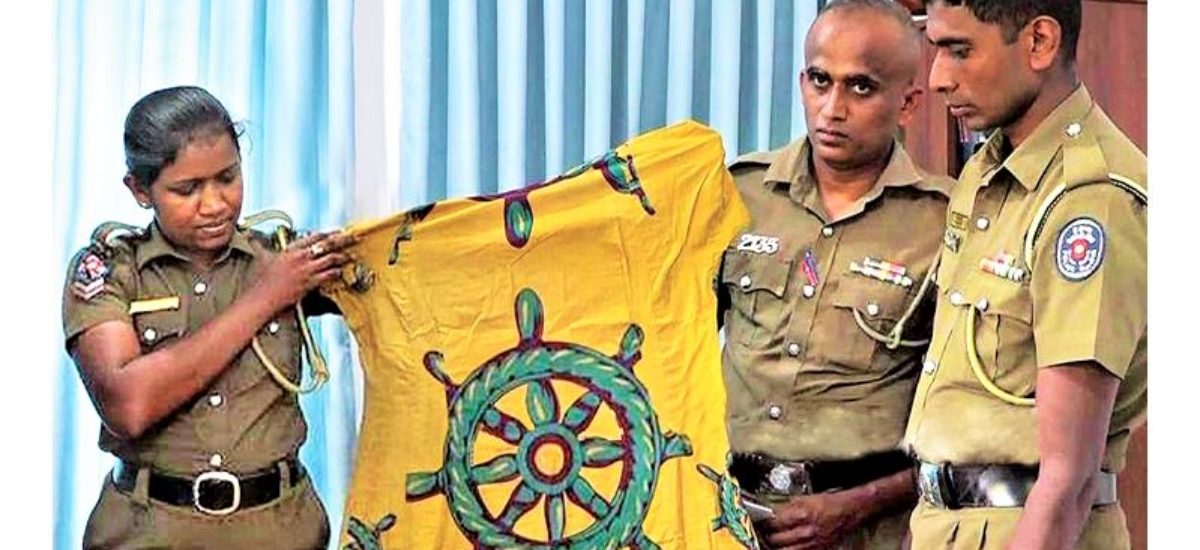Image Courtesy of The Sunday Observer
It is a curious thing to imagine the state of human rights around the world if national leaders were simply left to their own devices. Fortunately, a minimal standard of legal obligations to protect human rights exists in the form of international covenants, many of which Sri Lanka is a signatory to. Sri Lanka’s commitment to the ICCPR however, displays a stark disparity between ‘textual enactment’ and meaningful implementation. It is a glaring example of why international legal obligations are essential and are often insufficient. It proves, if left to their own devices, that national leaders may not merely overlook violations but deliberately defend them.
Delayed justice
The ICCPR compels governments to protect civil and political rights. These are basic rights such as the right to liberty, equality before the law, the right to a fair trial, freedom of expression, freedom from torture etc. Sri Lanka acceded to the ICCPR in 1980 but did not incorporate the covenant into domestic law until 2007. As a result, there was no legal obligation to protect civil and political rights within the country.
A quote by Chief Justice Sharvananda in 1987 during the Joseph Perera v. Attorney-General case captures the danger of restricting certain civil and political rights and why state regulation must be exercised with caution.
“Laws that trench on the area of speech and expression must be narrowly and precisely drawn to deal with precise ends. Overbreadth in the area has a peculiar evil, the evil of creating chilling effects which deter the exercise of that freedom.”
The statement is a word of warning. Had the ICCPR been effectively enforced within local law, it is possible that the ‘chilling effects’ referred to by Chief Justice Sharvananda may have been minimised, allowing Sri Lankans to enjoy greater freedoms.
By 2006, Sri Lanka had acceded to the ICCPR which permitted the Human Rights Committee to examine human rights violations in Sri Lanka. However, accession meant nothing without a local law that enabled the same. It was the Supreme Court verdict that until such a law was enacted, provisions of the ICCPR remained unconstitutional. To delay enactment was to delay enforceable justice.
Denied rights
When the ICCPR was eventually ratified in 2007, only four main rights were included in the Act. These were the right to be recognised before the law, legal entitlements of alleged offenders, rights of the child and the right to access state benefits. The Government declared that all other rights were protected through the Constitution and the Supreme Court backed this claim. But to believe that existing laws help citizens fully realise their freedoms would be a stretch of the imagination.
The Constitution itself provides conditions upon which fundamental rights are restricted. It even allows other existing laws such as Criminal Law, to override the fundamental rights chapter. These limitations clash with the purpose of the ICCPR which recognise that some rights are ‘non-derogable’, meaning they cannot be restricted under any circumstances. In Sri Lanka however, they can.
In any case, civil and political rights within Sri Lankan law do not fulfil the ICCPR’s standards of protection. Simply put, the constitution as it is, fails to protect the rights of Sri Lankans.
Deliberate Violations
The ICCPR Act in Sri Lanka is intended to protect communities from violence and discrimination. For this, it contains provisions against the propagation of war, racial or religious hatred, and incitement to violence. Yet time and again, most prevalently in the recent past, the Act has been misconstrued and used to target and restrain ethnic-minorities.
Some unreasoned arrests made under the ICCPR Act in 2019 were the detainment of Shakthika Sathkumara and the arrest of Abdul Raheen Masaheena. Shakthika wrote a short story about homosexuality and child abuse in a Buddhist temple. It was a work of fiction and an expression of creativity. Should Game of Thrones have been banned and its writer arrested for religious hatred, incitement to violence or the prorogation of war? Abdul Masaheena simply wore a dress depicting a ship’s wheel which was deemed to look like the Buddhist symbol. Her clothing it appears, threatened national security or sparked religious hatred. It is difficult to determine which drastic impact it had that called for her arrest. In 2020 Ramzy Razik was arrested for a Facebook post which claimed to have violated the ICCPR. He was denied adequate healthcare despite his failing health conditions. These are few of many such absurd persecutions made under the ICCPR Act.
The policy of compulsory cremation that sparked extreme controversy and then came to convenient halt is a useful example. The policy was based on discrimination amounting to persecution of Muslims. Under the ICCPR, the right to religion cannot be derogated under any circumstances and the government policy (which was not based on scientific evidence and which contradicted global practice) was a blatant violation of the covenant. Despite the signing and ratifying of the ICCPR and the formulation of an ICCPR Act in Sri Lanka, citizen’s rights continue to be violated and most tragically, by the state that is tasked with protecting them.
While states may commit to international covenants and even incorporate them within local laws, this does not guarantee the protection of human rights. If, even with international legal obligations in place, states can manipulate laws and use them as a weapon against their own citizens, it is best national leaders are not left to their own devices. The ICCPR in Sri Lanka is an example for this.

